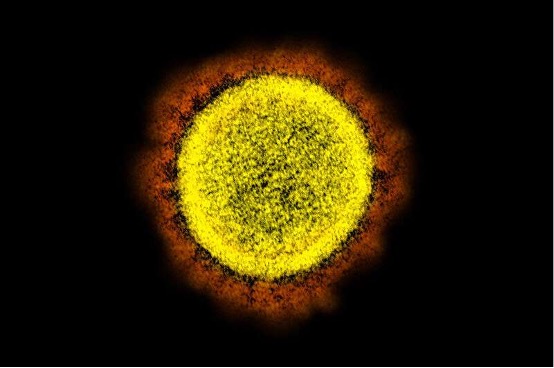Novel Rutgers COVID vaccine may provide long-lasting protection
May 10, 2023
Source: drugdu
 377
377

Animal studies indicate that a new COVID-19 vaccine developed at Rutgers may provide more durable protection against SARS-CoV-2 and its emerging variants than existing vaccines.
"We need a better vaccine, one that provides years of robust protection with fewer booster shots against a variety of SARS-CoV-2 strains. Our data suggest this vaccine candidate might be able to do that," said Stephen Anderson, associate professor of Molecular Biology and Biochemistry in SAS, resident member of the Rutgers Center for Advanced Biotechnology and Medicine and senior author of the paper in Vaccines.
Existing COVID vaccines often provide some protection against serious disease and death. However, these vaccines typically elicit temporary bursts of protective antibodies that rapidly wane, even after booster doses, leaving most individuals vulnerable to potentially dangerous repeat infections.
This new vaccine, dubbed MT-001, might provide longer-lasting protection against many COVID-19 varieties. "Thankfully, the current vaccines saved many lives, but they're still not optimal in some important respects," said Anderson. "They may not durably prevent people from getting sick."
Rutgers researchers developed MT-001 using technological approaches informed by an ambitious National Institutes of Health project that aimed to create an antibody for every protein in the human body.
Both FDA-approved RNA vaccines (and most other vaccines approved worldwide) use the entire COVID-19 spike protein as the trigger for the immune response. The new MT-001 vaccine candidate uses a unique section of that spike protein as its immunogen. This brings several advantages.
First, the spike protein section in this immunogen encompasses most of the targets for protective antibodies, including regions that are likely to remain unchanged in (and thus remain effective against) future variants. The data suggest that MT-001 (or its updated booster version) may elicit "broadly neutralizing" antibodies that confer protection against SARS-CoV-2 strain variants currently circulating in the human population and future variants that have not yet appeared.
Second, MT-001 was designed to be relatively straightforward to manufacture and distribute without special low-temperature handling. This could make vaccines based on the MT-001 prototype readily accessible from stockpiles, even in places where cold-storage infrastructure is lacking, should a coronavirus pandemic flare up again.
"In theory, it's possible that a booster shot of our variant-updated version of MT-001 could provide lifelong protection. The animal data indicate that it should, at the very least, provide protective antibody levels for at least a year or more, which is a vast improvement over today's vaccines, particularly given that many people are clearly unwilling to get a booster every few months," said Anderson. "Our goal is to enable people to put the fear of catching COVID behind them."
Provided by Rutgers University
By editorRead more on
- The first subject has been dosed in the Phase I clinical trial of Yuandong Bio’s EP-0210 monoclonal antibody injection. February 10, 2026
- Clinical trial of recombinant herpes zoster ZFA01 adjuvant vaccine (CHO cells) approved February 10, 2026
- Heyu Pharmaceuticals’ FGFR4 inhibitor ipagoglottinib has received Fast Track designation from the FDA for the treatment of advanced HCC patients with FGF19 overexpression who have been treated with ICIs and mTKIs. February 10, 2026
- Sanofi’s “Rilzabrutinib” has been recognized as a Breakthrough Therapy in the United States and an Orphan Drug in Japan, and has applied for marketing approval in China. February 10, 2026
- Domestically developed blockbuster ADC approved for new indication February 10, 2026
your submission has already been received.
OK
Subscribe
Please enter a valid Email address!
Submit
The most relevant industry news & insight will be sent to you every two weeks.



